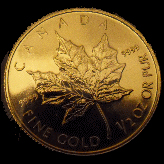Who Sets the Prices of Precious Metals?
by Jerry WhiteWhat are the London gold and silver fixings? Who exactly are the fixers? And if the gold bullion market is centered in London, how can it trade 24 hours a day? Who sets the prices of gold, silver, platinum and palladium?
Supply and demand
Precious metals trade freely on and off exchanges. The market prices of all precious metals are determined by supply and demand as reflected in bids and offers and thousands of daily transactions. The London gold and silver bullion markets and Comex exchange futures market in New York are the most liquid precious metals trading forums. They are kept closely in line with each other through dealer arbitrage. Prices of all other forms of gold and silver are based on the prices in these markets. The new Pan Asia exchange in China may some day join these markets in setting the price of gold.
The London fixings
The so-called London fixings in gold, silver, platinum and palladium are not conspiracies but actually auction markets. The mechanism of the fixings is to find by successive trials the single price for spot (that is, physical for 2-day settlement) at which all orders of buyers and all orders of sellers (primarily bullion dealers and their largest customers) are matched and balanced. The single fixing prices of each metal are used as benchmarks for pricing metals contracts between dealers, mining companies, refineries and fabricators throughout the world.
Gold is fixed twice daily starting at 10:30am and 3pm London time by the five members of the London Gold Market Fixing, who act as brokers for their customers. Silver is fixed daily at noon by the three members of the London Silver Market Fixing.
Platinum and palladium are fixed daily at 9:45am and 2pm by the four fixing members of the London Platinum & Palladium Market.
Dealer prices
Bullion dealers and banks, whether in London, New York, Zurich, Hong Kong, Singapore, Sydney, Dubai or anywhere else in the world trade throughout the day for spot gold and silver loco London (that is, for delivery on the books of a London dealer), and their realtime bid and asked prices for spot gold, silver, platinum and palladium are published on various sites on the web, including goldprice.org and thebulliondesk.com. Coin dealers generally base their prices for bullion coins and small bars on the bullion dealers’ loco London delivery spot price and will add a premium to it representing the mint fabrication cost and the dealer’s shipping cost from the mint, overhead and profit. The typical premium for one-ounce gold bullion coins is 5-7%, higher (around 15%) for fractional coins.
Comex contracts
The Comex division of NYMEX (part of the CME Group) trades gold futures and options contracts of 100 ounces minimum 995 fine during the New York day and electronically on Globex, plus mini-futures contracts of 10 ounces; and silver futures and options contracts of 5,000 ounces minimum 999 fine, plus mini-futures contracts of 1,000 ounces.

Precious Metals Investor’s Guide from TradersGame.com
To learn to invest in gold and silver, avoid pitfalls and save money by buying the form that is appropriate rather than one a salesman wants to sell you, read our precious metals investor’s guide, How to Buy Gold and Silver Today. Read it tonight and start protecting your purchasing power tomorrow.
Articles
Who Sets the Prices of Precious Metals?
Why a Rising Gold Price is Bad News
Hyperflation and Gold: Losing Faith in the Dollar
Invest in Gold to Preserve Your Purchasing Power
Buying Gold to Meet your Investment Goals
Pitfalls to Avoid When Investing in Gold
Making your First Silver Trade
Investing in Platinum-Group Metals
Will the US Government Confiscate Your Gold?

